#Math solver with solution
Explore tagged Tumblr posts
Text
personal highlights from the whole siiva arg:
the cognitive dissonance vn and its related MAXPH haltmanns archives upload (i feel like everyones gotta have this as their #1 favorite part of the arg it is simply too peak)
the storyline of the siiva ai through its logs over the years, it massively makes up for the siiva ai era of the channel being so light on serious lore
everything from the BLACK branch relating to the giant twist of chad warden actually being a genocidal maniac whom the voice stopped from exterminating the entirety of the world through the reboot
the mr rental/own storyline actually getting a proper finale 8 years later in the way of a choose your own adventure game
skyrim geoguesser. there is no better way to describe that step it was skyrim geoguesser
the PAINT branch being stuck in math hell (or, as one person described it, "a puzzle disguised as math") for hours seemingly without any obvious way forward until the solution randomly dropped out of nowhere by a pair of solvers who worked in secret
people being stuck solving Epic - Steve Harvey by doing a frame by frame analysis of it
noaka
14 notes
·
View notes
Text
A simple representation of images does not offer enough for proper memorization.
Study Faster And Retain More With This Quick Tip
I don’t know a single student who doesn’t want to study faster and retain more at the same time. I usually get a little nervous when trying to use quick fixes to make this happen, but today I have an actual quick tip to help you do just this!
Being a problem solver by nature, I dug into the situation and tried a few new approaches. Some worked, and some did not.
One of my best strategies was to sort the information into two categories:
facts to be memorized
concepts to be understood
You can use this strategy for any course. No matter the subject, there are things you have to memorize (terminology, dates, names, equations, etc) and concepts you need to master. Identifying this creates a clear, drama-free path, meaning you actually study faster and retain more because you are working on the right information in the right way.
How To Memorize Facts
I used to hate memorization work. It seemed tedious and hard and I sucked at it. Or so I thought!
Turns out I just didn’t have good skills. now I have some strategies in my toolbox and I love fact work. It’s easy and you can master it quickly. The key to mastering memorization is to:
Keep a list of what you need to memorize.
Schedule time every day to work on it. You must have the daily repetition if you want new facts to stick in your short-term memory. Start with just 10-min each day and you will see results.
Vary your memorization strategies. If you use only one strategy it becomes less effective.
How To Master Concepts
How you approach concept mastery is going to vary a lot based on the subject you are studying. There are two strategies to help with every subject:
1. Hands-On Practice
You will never fully master a concept through reading about it. You learn the concept through reading, but there is a big difference between learning something and mastering it.
The basics of hands-on practice for any subject are to come up with an applicable problem and solve it. Then come up with another problem and solve it too. Here are a few ideas, by subject, of how you might practice:
literature – Read a book or short story and write an analysis of whatever focus you are working on.
computer science – Come up with a problem and solve it with real code.
graphic design – Imagine a client asked you to design something, and create 3 different solutions for them.
math – Pick an equation, make up some starting numbers, and solve it.
science – Define a hypothesis, create a simple experiment, get in the lab and execute it!
2. Explain Or Teach It To Someone Else
Want to be certain you have mastered and fully understand a concept? Teach it to someone else.
As a teacher myself, I can tell you there have been plenty of concepts I thought I knew really well until I tried explaining them to someone else. You need a thorough understanding yourself before you can help someone else understand it.
Enlist the help of a friend or family member and try to explain a major concept in a few minutes. If you struggle, make note of the sticky spots. They are exactly what you need to work on next.
If you have no problem explaining it and your friend understood everything, mark it off your list and move on to the next concept.
I hope this quick strategy helps you dig out of confusion and take the right action in order to study faster and retain more.
Try It Yourself: 20-Minute Challenge
Grab your notes, a fresh piece of paper, and a timer.
Set the timer for 15 minutes.
Go through your notes and sort every piece of information into one of the two categories: concept or fact Challenge yourself to do this before the timer goes off. Go with your first instinct if you aren’t sure.
Spend the next 5 minutes and map out your next steps.
How and when will you work on the memorization each day?
How will you approach the first concept?


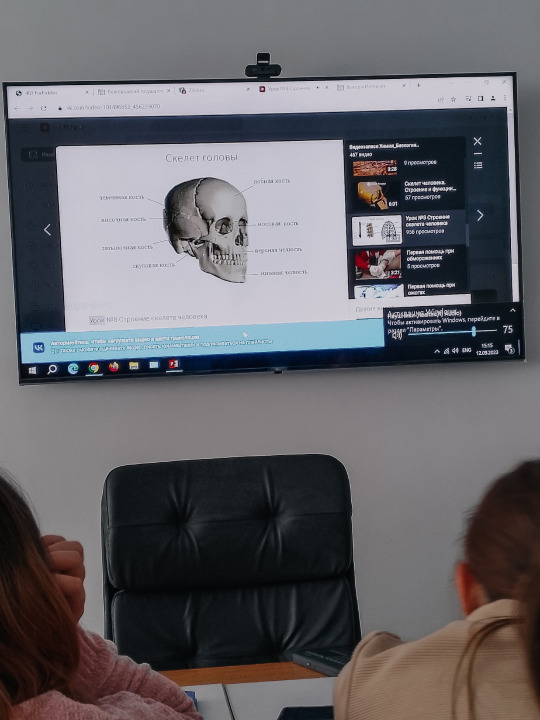

#university#my day#biology#unidays#study motivation#diary#blogger#study blog#real life#science#student#100 days of studying#grad student#med student#new studyblr#phd student#student life#study#study aesthetic#study hard#study inspiration#study notes#study space#study with me#studyblr#studyblr community#study tips#studying#studygram#college student
118 notes
·
View notes
Note
Ficlet request: Aria and Tomari openly flirting to each other and forgetting that they were hanging out with the rest of Liella to 🤭
The Hazuki mansion made for a great place for big Liella hangouts. All the space combined with the cozy homeliness meant everyone was comfortable and could be themselves.
And sometimes, being yourself meant critiquing errors in math books, if your name is Tomari or Aria.
While the others were talking or gaming or both, Tomari was at a desk in the main living area, fretting over an old math textbook. “This not only isn’t the correct solution, but this equation shouldn’t even be possible. The notation makes no sense!”
“It’s pretty wild how this made it to print without anyone realizing,” Aria agreed, sat across from her. Despite not being an official member of Liella, or even a Yuigaoka student, she had become a fixture at these hangouts, on account of her budding relationship with Tomari.
“I want to figure out what this equation was meant to look like. Perhaps I could work backwards, and once I find the right solution, I can send the publisher a strongly worded revision request.”
“I’m sure there are more recent editions of this book, it was probably fixed,” Aria said with a smile. She had become quite familiar with Tomari’s propensity to fixate on things like this. She was such a problem solver, and Aria found it charming. “But if you’d like, then we will work backwards, find the right solution, and I’ll even coauthor the strongly worded revision request.”
Tomari looked up to see Aria adjusting her glasses and smiling confidently. Tomari smiled back. “Agreed. However, somehow I doubt your ability to strongly word anything. You’re just so kind.”
Aria frowned. “Hey, I can be stern.” She leaned back and crossed her arms. “Just yesterday I told off a rude customer.”
“Oh? I wish I had seen that,” Tomari winked at her. “An assertive Aria-chan, what a lovely thing to imagine.”
Aria blushed and smiled. “I’m sure it wasn’t that impressive.”
“You deflect doubt and praise in equal measure. Your dedication to self determination is so admirable.”
“I…” Aria pondered that for a moment, then shook her head and pouted. “I…don’t know what to say to that.”
“And you’re so honest~” Tomari said, resting her chin in her hand.
Aria’s face got red, suddenly determined to counter Tomari’s flirting. “Well… Given how confident and smart you are, I think you’re the one who deserves praise, so… There.”
Tomari looked back down at the book and frowned. “Ah, now you’re changing the subject. Very shrewd. You’re so astute, my dear.”
Aria drummed her hands on the desk. “Quit it! It’s like you’re parrying my attacks.”
Tomari giggled, only to gasp softly and grimace when she glanced over to see a familiar pink phone on a selfie stick pointed towards them from the couch. “Sister Dearest…”
“Ignore me! Just keep doing what you’re doing,” Natsumi insisted, with Kanon and Mei both looking over and grinning at them.
Aria hid her face in her hands. “She’s definitely posting that online, isn’t she…?”
“She always does…” Tomari muttered.
8 notes
·
View notes
Text

What is STEM?
In the Senior High School (SHS) education, "STEM" stands for or refers to a set of academic subject that focuses particularly in "Science, Technology, Engineering, and Mathematics." It is an academic track or strand that focuses on these specific subjects to prepare students for careers in science, technology, engineering, or mathematics-related fields. It's a specialized educational program aimed at giving and providing students a strong foundation in these fields. It's a way of organizing and categorizing educational programs to help students develop skills and knowledge in these disciplines. This strand can help them in their college degrees in the near future since stem strand is in senior high school department it is only a two year program.
The Science, Technology, Engineering, and Mathematics (STEM) strand is one of the four strands available for senior high school in the Philippines. Students are free to choose their SHS track in the Philippines. Some may already choose something to prepare them for their college degree and future employment. Other students use SHS as an avenue to explore different subject matters and broaden their knowledge. The STEM strand in SHS is an inquiry and research-based program. It exposes students to more complex mathematics and science concepts and aims to serve as a foundation for their future college degrees.
Advantages of Taking STEM Strand.
The STEM strand encompasses many subject matters compared with other SHS strands. Because of this, the students are presented with many concepts and ideas that they can apply to their daily life as well as in their future studies.
SKILLS NEEDED IN STEM STRAND.
Critical Thinking
Being successful in STEM not only depends on the ability to think critically but also to apply concepts to solve a problem. To find solutions to problems, students must use their critical thinking skills. In STEM, this is much more than solving word problems
Problem-Solving
The notion of modern skills is what binds the STEM movement together. A skill that every student needs is the ability to problem-solve. Everybody will face problems every day, but some may be more complex than others, like doing taxes. Employers and society need problem solvers because it’s one of the types of skills that matter. Most STEM professionals may not directly use advanced mathematics like calculus taught in school, but the way it teaches people how to problem solve is significant.
Math & Science Skills
The mathematics and science skills you are learning in school are the foundation of STEM and must be applied in pursuit of solutions. The math and science used to solve problems will connect to and extend your coursework, as well as highlight connections between ideas and subject areas.
Collaboration
Big challenges are rarely solved by individuals. Working on STEM problems also involves learning to work as a productive part of a collaborative team. these skills will help students who want to take stem, it will help them so that they will not have difficulty in taking stem strand because stem students are studying different mathematical equations related to the field of engineering and architecture, critical thinking, mathematical and science skills are necessary because this strand specializes in the subject of pre-calculus and it also has earth and life sciences. Collaboration is necessary in this strand because performance tasks are often done in groups, especially communication and research in Filipino language and culture, oral communication, understanding culture, society and politics and English for academics and professional purposes.
STEM can offer several new skills to obtain. By learning about STEM skills, you can improve your abilities and use them to find job prospects in related fields. In this article, we discuss STEM skills, including some common examples, how you can develop these skills and how to highlight them during a job search.

What is the Purpose of Stem strand?
The goal or purpose of the STEM (Science, Technology, Engineering, and Mathematics) strand in education is to provide students with a strong foundation in these related fields. It aims to prepare students for careers and further education in areas related to science, technology, engineering, and mathematics. This strand often focuses on developing critical thinking, problem-solving skills, and a deep understanding of these subjects, which are essential in today's increasingly technology-driven world. It also seeks to promote innovation, creativity, and a strong analytical mindset in students. Ultimately, the goal is to equip students with the knowledge and skills needed to excel in STEM-related professions and contribute to advancements in these fields.
Conclusion.
In my conclusion, this strand is one of the best strands to choose because here you can develop different skills that will help you in future careers such as nursing, civil engineering and BS Psychology. In this strand, your talents will be honed in various subjects, especially in math and science. you can develop your mathematical skills and technology skills here. This is also where you can develop multitasking and you will undergo a lot of pressure but it is a preparation for us in college so that we will not be shocked badly in college because the pressure is greater in college. this strand is one of the most difficult strands but it is one of the most effective strands to increase your knowledge and skills that you can use and support in your journey in the future.
FIRST SEMESTER
CORE SUBJECTS
•Oral Communication in Context
•Komunikasyon at Pananaliksik sa Wika at Kulturang Pilipino
•General Mathematics
•Physical Education and Health (P.E) 1
•Earth Science
•Personal Development
APPLIED AND SPECIALIZED SUBJECTS
•Empowerment Technologies (E-Tech) ICT for Professionals
•Pre-Calculus
•General Chemistry 1
SECOND SEMESTER
CORE SUBJECTS
•Reading and Writing skills
•Pagbasa at Pagsusuri ng ibat ibang Teksto sa Pananaliksik
•Statistics and Probability
•Disaster Readiness and Risk Reduction
•Physical Education and Health (P.E) 2
•21st Century Literature from the Philippines and the World
APPLIED AND SPECIALIZED SUBJECTS
•Practical Research
•Basic Calculus
•General Biology 1

References:
https://www.indeed.com/career-advice/resumes-cover-letters/stem-skills
https://www.teacherph.com/list-specialized-subjects-stem-strand/
https://stem.getintoenergy.com/stem-skills-list/
https://reedleyschool.edu.ph/blog/overview-of-stem-strand-and-curriculum/
https://stemcadia.com/stem-skills/
https://www.bataannationalhighschoolshs.com/stem
#Whatisstem#Stem#Stemstrand#senior high school#Stem students#E-tech#Importance of Stem#Stem is the best
4 notes
·
View notes
Text
Ok, instead of just getting angry at these people (which will probably just reaffirm their usage of ChatGPT in these ways to themselves), I'll offer alternatives that don't rely on LLMs (Large Language Models) like ChatGPT. All a LLM does is write sentences, and they're not reliable to write factual information, even when you feed them the information yourself. See: the case of the dangerous edible mushroom identification book, the issues it has with processing large chunks of information for summary, the problems ChatGPT has as a search engine, and how incompetent ChatGPT is at solving math problems.

Alternative for cooking:
If you have food at home and can't come up with anything to cook, try MyFridgeFood or SuperCook, it shows you recipes based on what you already have laying around (SuperCook shows you both recipes that match your available ingredients exactly and recipes that may have additional ingredients, both of which you can filter). If you want to be more thorough, AnyList shows you recipes, saves your ingredients, and can be used to generate grocery shopping lists based on those, and can be used for long-term meal planning. PlanToEat lets you save recipes from anywhere on the web and can automatically generate shopping lists based on them. Besides those, I find it useful to go to the supermarket and walk around until I get a vague craving for what I want, then look up recipes and make a shopping list based on that.
Alternative for summarizing:
Recall is an AI-based solution specifically built for summarizing both files and web content. There are many others like it. If you want human-made pre-made summaries for things, check out SparkNotes and CliffsNotes. If you want to cross-reference any notes, use an academic search engine such as Web of Science.
Alternative for search engine:
It's obvious to any seasoned user that the quality of Google as a search engine has significantly decreased throughout the years, being absurdly vulnerable to SEO spam. The most popular Google Search alternatives are DuckDuckGo and Brave Search, as they more often than not offer good results while protecting user privacy. If you want the best of the best, and are willing to pay for the best of the best, a lot of people recommend Kagi. If you struggle to find what you're looking for regardless of browser, perhaps you should brush up on how to do web searches more efficiently (plus each search engine has its own keywords and search operators you can learn to improve your search results).
Alternative for maths:
if you're struggling to solve a maths problem yourself, you can input your problem into Photomath and it'll show you a step by step guide on how to solve it for free. Another alternative for this purpose is Symbolab, and though it shows you the step-by-step of each problem, you can only see the specifics of the explanation with a subscription. Personally, my favourite online maths solver with steps for when I'm stuck is Cymath, which shows solutions and steps for free, though it only comprehends some Algebra/Calculus problems thus far. If none of those help you truly understand a problem or a subject, you can ask at Mathematics Stack Exchange (no shame in asking!). If you don't have a scientific calculator, you can try the Desmos website, or the NumWorks app or website (a free emulated version of the actual physical graphing calculators they produce).
Just like all these, whatever it is you want done by AIs like ChatGPT, you can find other programs (and ever other AI-based programs!) made tailored to your specifications. By choosing the alternatives you protect yourself from misinformation.
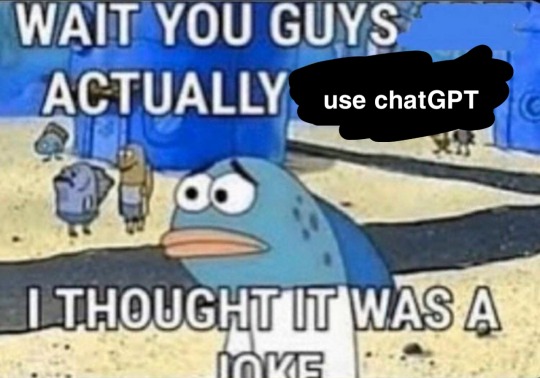
#don't be mistaken i get really angry when people use ChatGPT or other LLMs like the OP showed from the tags#but if we are to stop people from doing that we should also show them what else they could use or do#psa#rambling#i spent like an hour writing this please someone pay attention to it
144K notes
·
View notes
Text
Say Goodbye to Math Anxiety with Mathzai – Your Smartest Math Partner
Mathematics has long been a subject that sparks fear and confusion in many students. But what if solving equations could feel like playing a game, and preparing for exams was actually fun? Welcome to Mathzai – the future of learning math.
🌟 What is Mathzai?
Mathzai is an innovative online platform designed to make math learning simple, fast, and stress-free. Whether you're a student struggling with algebra or a parent helping with homework, Mathzai provides intelligent solutions, step-by-step guidance, and interactive tools to make numbers your best friend.
🔍 Key Features of Mathzai
1. Step-by-Step Problem Solving: No more confusion! Mathzai breaks down every problem into easy steps, helping students understand the logic behind the solution.
2. AI-Powered Math Assistant: Get instant answers with clear explanations using Mathzai’s AI-based solver. It's like having a math tutor available 24/7.
3. Exam & Homework Support: Be it daily homework or last-minute revision, Mathzai ensures you're always ready with the right solutions.
4. Interactive & Engaging Interface: Designed to keep learners engaged, Mathzai transforms dull math problems into interactive challenges.
🎯 Who Can Use Mathzai?
Students from primary to high school
Parents helping kids with assignments
Tutors & Teachers looking for effective teaching tools
Competitive Exam Aspirants needing quick, accurate solutions
💡 Why Choose Mathzai?
Because math doesn’t have to be hard. Mathzai simplifies the toughest concepts and helps build strong problem-solving skills. Whether you're aiming for academic excellence or just want to keep up, Mathzai is the smart way forward.
Ready to transform your math journey? Visit www.mathzai.com today and solve smarter, not harder.
0 notes
Text
How the IB Curriculum Builds Future-Ready Learners in Mumbai
If you’re dreaming of a world-class education for your child, the International Baccalaureate (IB) curriculum at Stellarworld School, one of the Best IB Schools in Mumbai, might be your answer. This IB School in Andheri West is shaping kids into critical thinkers, global citizens, and problem-solvers ready for 2025’s fast-paced world. With campuses across Mumbai, including Andheri West, Stellarworld School’s IB program offers a transformative journey from preschool to high school. What Is the IB Curriculum? The IB, founded in 1968 in Geneva, is a globally recognized framework for ages 3–19, prioritizing holistic growth over rote learning. Unlike traditional boards like CBSE, IB fosters intellectual, emotional, and social skills through four programs:
Primary Years Programme (PYP): Ages 3–12, inquiry-based learning (offered at Stellarworld School’s Primary in Andheri).
Middle Years Programme (MYP): Ages 11–16, connecting studies to real life.
Diploma Programme (DP): Ages 16–19, rigorous pre-university prep.
Career-related Programme (CP): Ages 16–19, blending academics with career skills.
Fostering Critical Thinking: Beyond Textbooks In 2025’s world of AI and automation, critical thinking is non-negotiable. The IB curriculum at Stellarworld School, the Best IB School in Mumbai, emphasizes “how to think” over “what to think”: Inquiry-Based Learning: PYP at Stellarworld School’s Preschool in Andheri encourages kids to ask “why” and explore answers through projects, like studying ecosystems via a mini-garden. Theory of Knowledge (TOK): In DP, teens question knowledge itself—e.g., “Is scientific truth absolute?”—sharpening analytical skills. Real-World Challenges: MYP students might design a sustainable Mumbai transport plan, blending math, geography, and ethics.
Building Global Citizenship: A Worldview That Wins Mumbai’s multicultural vibe Gujarati, Marathi, expat communities make it ideal for IB’s global citizenship focus. Stellarworld School’s IB School in Andheri West nurtures kids who thrive in diverse settings: Intercultural Understanding: PYP units like “Sharing the Planet” teach empathy through global issues—kids might compare Mumbai’s water scarcity to Africa’s. Multilingualism: Stellarworld School encourages Hindi, French, or Spanish alongside English, vital for global careers. Community Service: DP’s Creativity, Activity, Service (CAS) has students volunteering to organize Andheri cleanups fostering social responsibility.
Sharpening Problem-Solving Skills: Ready for Real Life Problem-solving is at the heart of IB, and Stellarworld School’s hands-on approach makes it stick: Project-Based Learning: PYP students at Primary in Andheri might build a solar model to study energy, blending science and creativity. Extended Essay (EE): DP teens research topics like “Can Mumbai’s monsoons be better managed?” honing research and solution-building skills. Interdisciplinary Approach: MYP connects subjects e.g., coding a game in math and art mimicking real-world innovation.
Holistic Development: More Than Marks Unlike exam-heavy boards, IB at Stellarworld School balances academics with personal growth: Emotional Intelligence: PYP’s “Who We Are” unit helps kids reflect on feelings, building resilience key in Mumbai’s high-pressure environment. Physical Growth: Sports like football or yoga at Stellarworld School’s Andheri campus promote health, with 80% of students in co-curriculars. Creativity: DP’s CAS encourages arts think directing a play nurturing innovation. This holistic vibe aligns with NEP 2025’s focus on well-rounded education. Stellarworld School’s Best IB School in Mumbai status comes from producing confident, versatile kids.
Preparing for Global Universities and Careers The IB’s rigor is a passport to top universities and jobs, especially in Mumbai’s globalized economy: University Recognition: IB’s DP is accepted by 5,000+ universities worldwide, including IITs and Ivy Leagues. Career Edge: IB’s focus on skills like time management (via EE deadlines) and collaboration (group projects) preps kids for Mumbai’s IT and fintech sectors think roles at Reliance Jio. Portfolio Building: CAS and EE create standout resumes, showcasing leadership and research. Why Stellarworld School Stands Out in Mumbai Stellarworld School, featured at https://sws.edu.in/, is a top choice for IB in Mumbai: Comprehensive IB: Offers PYP, MYP, DP, and CP, with a 70% practical curriculum—think robotics labs and VR learning. Prime Location: The IB School in Andheri West is accessible, with state-of-the-art facilities like smart classrooms. Expert Faculty: 90% of teachers hold advanced degrees, many with international training, ensuring personalized guidance (1:6 teacher-student ratio). Life Literacy Program: Unique courses in financial literacy, emotional intelligence, and tech skills enhance IB’s holistic approach. Extracurriculars: Clubs (debate, coding) and sports (MMA, swimming) engage 80% of students, fostering creativity and teamwork. Mumbai’s 2025 Context: Why IB Matters Mumbai’s 2025 landscape tech hubs in BKC, startups in Powai demands future-ready skills: Tech Surge: AI and fintech growth need critical thinkers IB’s inquiry focus delivers. Global Hub: As India’s financial capital, Mumbai’s expat and corporate communities favor IB’s international bent. NEP Alignment: IB’s holistic, skill-based approach mirrors NEP’s vision, making Stellarworld School grads standouts. Challenges to Consider IB isn’t a walk in the park here’s what to know: Rigorous Workload: DP’s EE and TOK demand discipline; Stellarworld School’s faculty support eases this with personalized coaching. Adjustment: Transitioning from local boards may need extra prep Stellarworld School’s bridge courses help. Real-World Impact: What It Means for Your Child Imagine your child at Stellarworld School’s Preschool in Andheri, exploring climate change through a recycled-art project, or researching Mumbai’s traffic solutions. By graduation, they’re not just exam-smart but confident, empathetic, and ready for Stanford or a startup. That’s the IB effect—turning Mumbai kids into global changemakers. In 2025, with India’s digital economy booming, Stellarworld School’s IB grads are coding AI, leading NGOs, or studying abroad. Your Next Step The IB curriculum at Stellarworld School, the Best IB School in Mumbai, builds critical thinking, global citizenship, and problem-solving to create future-ready learners.
0 notes
Text
10 Top Tools for Math AI
The integration of artificial intelligence into mathematics has birthed a new generation of tools that empower students, teachers, and even research scientists to tackle math problems with unprecedented efficiency.
From algebra to complex calculus, these AI math solvers provide step-by-step explanations, instant solutions, and detailed steps for problems ranging from basic equations to tricky topics like trigonometry and right triangle geometry. Below are ten standout AI math helper platforms reshaping how we solve math problems:(https://www.wukongsch.com/blog/10-top-tools-for-math-ai-post-44400/)
1. Photo math
Background: A pioneer in image upload technology, Photo math allows users to scan handwritten or printed math problems and provides step-by-step solutions, ideal for homework help.
Discovering the maths whiz in every child, that’s what we do.

2. Symbolab
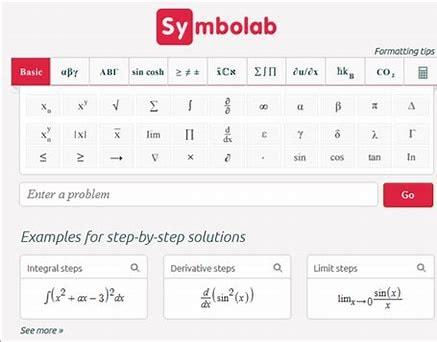
3. Wolfram Alpha
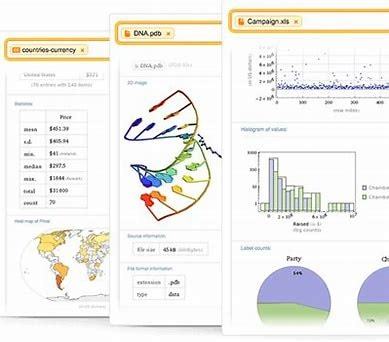
4. Mathway
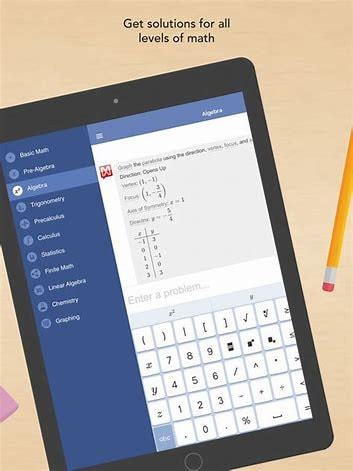
5. Socratic by Google
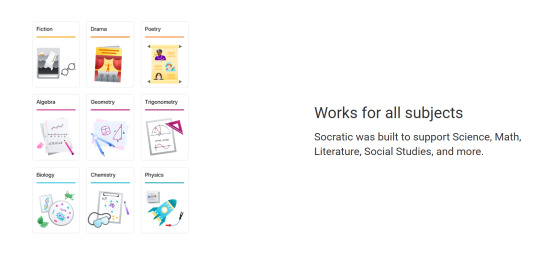
6. Microsoft Math Solver
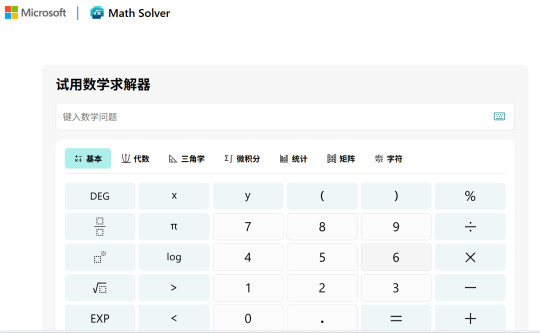
7. Cymath
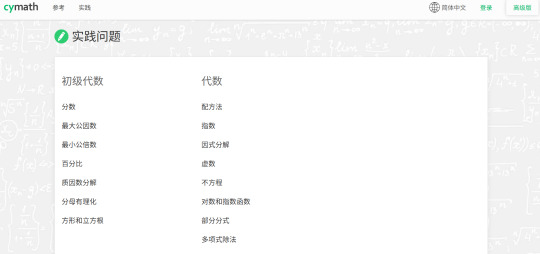
8. Brainly
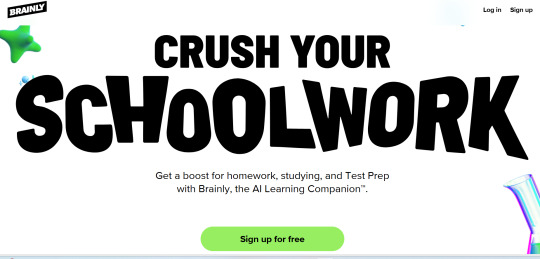
9. Chegg Math Solver
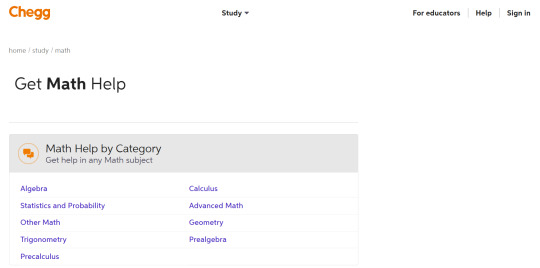
10. Gauthmath

Summary: Each tool caters to specific needs. For instance:
Wolfram Alpha excels in scientific research.
Photomath and Gauthmath dominate image-based problem-solving.
Symbolab and Chegg prioritize teaching through detailed steps.
How to Choose the Right AI Math Tool
Selecting the best AI math tutor depends on your needs:
Accuracy: Opt for tools like Wolfram Alpha or Symbolab, known for correct solutions backed by robust algorithms.
Range of Topics: Ensure the tool covers algebra, geometry, calculus, and trigonometry if tackling various types of problems.
Step-by-Step Explanations: Platforms like Photomath and Cymath excel in breaking down detailed steps, crucial for learning.
Upload Options: If you prefer upload photos or drop image features, Photomath and Socratic are top choices.
Cost: Many tools offer free tiers (e.g., Microsoft Math Solver), while premium services like Chegg provide advanced support.
User Interface: Mobile-friendly designs (e.g., Mathway) enhance accessibility for students on-the-go.
For teachers, tools that generate worksheets or track progress (e.g., Brainly) add value. Always test platforms with sample math equations to gauge their accuracy and ease of use.
FAQS About Math AI
Q: What is Best AI Math Solver Online Free?
Microsoft Math Solver is a free tool that allows users to either upload photos of their math problems or enter them manually. It provides step-by-step explanations, making it an excellent choice for students seeking a comprehensive understanding of their math problems.
Q: Can Math AI Solve Math Problems?
Yes, AI Math Solver can solve math problems from uploaded images. Simply upload a clear photo of your math problem or worksheet, and the AI will process the image to extract the problem and provide a solution.
Can AI Solve Complex Math Problems?
A new artificial intelligence-based method quickly solves complex math equations used broadly across many industries
Can Math Ai Help Us Exam Preparation ?
Yes
Can AI be a Ai Math Tutor and Solve Instant Solutions ?
Yes, AI tutors can solve advanced math problem.
Conclusion
AI math solvers provide instant solutions and step-by-step explanations for math problems, helping students and teachers alike. As technology progresses, more innovations like AR-enhanced lessons and AI-driven research are expected. Embracing these tools turns challenges into growth opportunities, revolutionizing math education with AI. If you have a need, Wukong Education will help you learn math better.
0 notes
Text
From Coding to Creativity: How Robotics Encourages Innovation in Kids
When we think of robotics for kids, we often imagine them just learning to code. But robotics is so much more than that! It’s a way for kids to think creatively, solve problems, and bring their ideas to life.
With the rise of robotics STEM education, children are not just memorizing facts—they’re experimenting, building, and innovating. This hands-on learning helps them develop the skills they need for the future while having fun.
Let’s see how robotics learning encourages creativity in kids and why it’s such an exciting part of today’s STEM education system.
How Robotics Turns Kids into Creators, Not Just Coders
Many people think that coding is all about following strict rules. But when kids learn robotics, they see that coding is actually a creative tool. It allows them to design, build, and control their own robots, turning their ideas into real working models.
Here’s how robotics STEM education helps kids become more creative:
Encourages Experimentation: There’s no single "right way" to solve a problem in robotics. Kids try different things, fail, and try again until they succeed.
Mixes Art with Technology: Kids can design unique robots, add creative features, and even make their robots tell stories or dance!
Builds Problem-Solving Skills: If a robot doesn’t work as expected, kids learn to think critically and find solutions instead of giving up.
By making mistakes and fixing them, kids develop confidence, resilience, and an innovative mindset—all key traits for future success.
Why Robotics is a Big Deal in STEM Education
The STEM education system (Science, Technology, Engineering, and Math) is all about preparing kids for the future. But traditional learning can sometimes feel boring or disconnected from real life. That’s where robotics STEM education comes in!
Instead of just reading about science and math, kids get to apply their knowledge in exciting, hands-on projects.
Why Robotics STEM Education is a Game-Changer:
Makes STEM Fun – Learning physics and math can feel like play when kids see their robots move, react, and complete tasks.
Encourages Teamwork – Kids often work together in a robotics class, helping each other solve problems and build new things.
Prepares Kids for the Future – Many future jobs will involve robotics and AI. Learning these skills early gives kids a head start.
With robotics learning, kids don’t just memorize facts—they learn how to think, create, and innovate!
How Robotics Sparks Innovation in Kids
One of the best things about robotics STEM education is that it gives kids the freedom to explore. They’re not just following instructions; they’re designing, building, and improving their own creations.
Here’s How Robotics Encourages Innovation:
Kids Learn by Doing – Instead of just reading about how things work, kids get hands-on experience by building and programming robots.
It Encourages Design Thinking – In a robotics class, kids don’t just write code—they think about how their robots should look, move, and solve problems.
It Turns Kids into Inventors – Many kids start with simple projects but quickly move on to more complex ideas, like robots that solve puzzles or help with everyday tasks.
This kind of learning helps kids become natural problem-solvers and future innovators.
Online Robotics Classes: The Future of Learning
Not long ago, kids needed to be in a classroom to learn robotics. But now, online robotics classes make it possible to learn from anywhere! Whether your child is a beginner or an advanced learner, online courses offer flexibility and fun.
Why Parents Love Online Robotics Classes:
Kids Can Learn from Home – No need to travel—kids can take classes from their own space.
Self-Paced Learning – Children can go at their own speed, taking time to explore concepts fully.
Access to Expert Teachers – Online platforms connect kids with some of the best robotics instructors.
If you’re looking for an engaging and easy way for your child to start robotics, online classes are a great choice!
Ready to Get Started? Check Out Guruface’s Robotics and Coding Classes!
If you want your child to learn robotics in a fun, interactive way, check out Guruface’s online robotics classes. Guruface offers expert-led robotics and coding classes designed to make STEM learning exciting and easy.
With hands-on projects and engaging lessons, Guruface helps kids build creativity, problem-solving skills, and confidence—all while having a blast!
Start Your Child’s Robotics Journey Today!
Want to see your child turn their ideas into reality? Explore Guruface’s robotics and coding classes and give them a head start in STEM!
0 notes
Text
Is Chemical Engineering the Right Choice for You_ 5 Signs You're Made for This Field

Choosing a career upon graduation is perhaps even harder with so many interesting fields to specialise in. If you enjoy science, enjoy problem-solving, and want to actually make a positive contribution to the world, however, chemical engineering may be the ideal career for you.
Students in various universities are urged to think imaginatively beyond conventional textbooks and get ready to become innovative problem solvers. Let us help you evaluate if you are truly suited for this incredible trip before you submit your application.
1. You enjoy solving real-world technical problems
Have you ever considered how fuels are purified or how plastic is recycled? Such inquiry betrays the attitude of a chemical engineer. Already aligned with what this discipline asks if you love physics, mathematics, and chemistry and like linking theory with practical effects.
You might be a great fit if:
You’re analytical and enjoy breaking down complex systems
You like working with formulas and real-world applications
Sustaining concentration on long-term problem-solving is possible.
At a chemical engineering course, one learns how to design and optimise processes for converting raw materials into useful products, food and drugs, to clean fuels.
2. You’re passionate about innovation and sustainability
Leading the efforts to meet present industrial and environmental problems are chemical engineers. They help to define a more sustainable future, from low-emission fuels to biodegradable packaging.
Here’s a quick comparison of focus areas in major engineering branches:
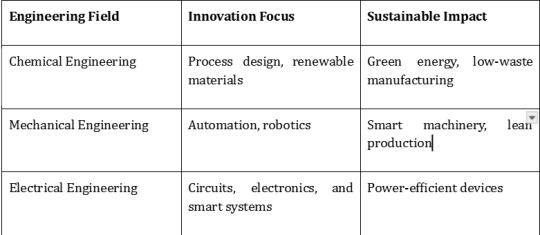
If you’re eager to drive change through science and innovation, chemical engineering will offer the right tools and opportunities.
3. You’re adaptable and curious about technology
Chemical engineering doesn’t stand still. The integration of AI, biotechnology, and nanotechnology is reshaping the field. Whether it’s creating smart materials or new drug delivery systems, the future belongs to adaptable thinkers.
You’re likely to thrive here if:
You enjoy learning and evolving with new technologies
You like interdisciplinary collaboration
You’re curious about blending science with innovation
Most graduates go beyond traditional jobs and upskill further—some even opt for management degrees at Top B Schools to lead tech-based companies and startups.
4. You enjoy both lab and field work
A career in chemical engineering means variety. Some days might be spent running experiments in the lab; others could involve supervising industrial setups or collaborating on new product development.
Checklist:
You enjoy practical science and experimentation
You’re comfortable in high-pressure, hands-on environments
You can work well in both teams and independently
Leading chemical engineering colleges like D Y Patil International University offer project-based learning and internships that prepare you for the dynamic roles you’ll take on after graduation.
5. You’re seeking a high-growth career with global reach
One of the best parts about a BTech in Chemical Engineering is the flexibility it offers. You can work in diverse sectors like:
Pharmaceuticals and healthcare
Food and beverage industries
Petrochemicals and renewable energy
Water treatment and environmental engineering
Research, policy, and government sectors
Entry-level salaries in India range between ₹4-7 LPA, while experienced professionals and international roles can command much higher packages. Many engineers also transition into management, leveraging B School admissions to combine their technical background with leadership roles.
Here’s how to know if this is the right path
Still not sure? Here’s a rapid checklist to help identify if chemical engineering is the right path for you:
Am I curious about how materials and chemicals work?
Do I enjoy subjects like chemistry, math, and physics?
Am I motivated to create solutions that impact society?
Do I want a career that mixes science with real-world outcomes?
Would I enjoy working in both labs and industries?
If you’ve nodded yes to at least three of these, it might be time to explore BTech in Chemical Engineering more seriously.
What to Expect in a Chemical Engineering Program
A B.Tech in Chemical Engineering offers a thorough learning experience combining theoretical knowledge with practical application. Usually expect the following:
Core Subjects
The curriculum will cover basic concepts, including
Thermodynamics: Knowledge of energy and its conversions.
Studying the behaviour of gases and liquids: fluid mechanics.
Mass Transfer: Understanding the motion of components in mixtures.
Heat Transfer: Studying the thermal energy exchange.
Reaction Engineering: Designing and evaluating chemical reactors.
Process Control: Knowing how to keep ideal operating circumstances.
Hands-on Education: One obtains practical experience
Lab Work: Performing tests to support theoretical ideas.
Software for modelling and analysis of chemical processes: simulations
Working together on actual engineering problems in design projects.
This combination of theoretical foundation and real-world activity aims to arm you with the range of abilities required in the field.
List of B.Tech Chemical Engineering Colleges in Pune
Pursuing a B.Tech in Chemical Engineering in Pune offers several prominent institutions:
Recognised for its worldwide perspective and readiness for future B School studies as well as engineering professions, D Y Patil International University.
Renowned for its rigorous academic program and extensive business contacts, Vishwakarma Institute of Technology (VIT).
Pune's College of Engineering (COEP) is a prestigious, established institution with a large alumni network.
Offers a multidisciplinary education emphasising technology and peace values, MIT-WPU (MIT-WPU).
Dr. D.Y. Patil Institute of Engineering, Management and Research (DYPIEMR) stresses academic success and guarantees that students are prepared for the profession.
Every one of these universities presents a different setting for budding chemical engineers.
Final Thoughts
Finding the correct career path is about following your interests and talents rather than just riding trends. A chemical engineering course could be the stepping stone to an interesting and fulfilling job if you're enthralled by the power of chemistry, drawn to challenges, and driven to better the surroundings around you.
Finding the right job route is about following your interests and abilities rather than merely riding trends. If you find enchantment in the power of chemistry, are drawn to challenges, and have a drive to enhance your surroundings, a chemical engineering class could be the stepping stone to an engaging and satisfying job.
Students at D Y Patil International University are taught to be changemakers as well as experts. Thus, resist the inertia from stops you. Pay attention to your intuition and leap toward a future founded on innovation, influence, and limitless possibilities.
FAQ
1. Is chemical engineering a hard to study?
It's a demanding class, but if you love science and problem-solving, it will be extremely fulfilling. It is manageable thanks to hands-on learning and supportive faculty in top chemical engineering colleges.
2. After completing my chemical engineering degree, could I work abroad?
Certainly. In sectors like oil and gas, medications, energy, and others, chemical engineers are sought after all around.
3. What is the difference between chemical engineering from chemistry?
Whereas chemical engineering applies the information to design and run industrial processes on a large scale, chemistry concentrates on comprehending compounds and reactions.
4. Are internships important during the course?
Yes, internships provide real-world experience and industry exposure—most chemical engineering colleges include them as a core part of their curriculum.
5. Can I pursue management after this degree?
Yes! Many chemical engineers go for B School admissions to transition into leadership, operations, or entrepreneurship roles.
#b tech colleges in pune#best mca colleges in pune#graphic design colleges#civil engineering courses after 12th#graphic design courses#mca colleges in pune#graphic design colleges in pune#graphic design courses in pune#dypiu
0 notes
Text
Rubik’s Cube Continues To Revolutionize Problem Solving, Creativity, Education And Fun Around The World

The Rubik's Cube, a six-colored, three-dimensional puzzle, remains one of the most iconic toys in the world. With more than 43 quintillion possible combinations and only one solution, it offers an unmatched blend of logic, spatial reasoning, and visual memory. In an era of screen-based entertainment, this tactile and mind-stimulating puzzle still thrives, engaging millions of enthusiasts globally across all age groups.
The Birth Of A Puzzle That Took The World By Storm
The Rubik’s Cube was not invented with the intention of becoming a global sensation. Its initial purpose was purely academic—designed to help visualize three-dimensional movement. However, when it entered the global toy market, its addictive challenge and colorful appeal sparked immediate fascination. During the early 1980s, the cube turned into a massive craze, with millions of units sold and an entire generation hooked on solving its mysterious mechanics.
The early enthusiasm never truly disappeared. In fact, over the past two decades, the cube has evolved with its community. It has matured from a casual toy into a respected mental exercise and an international competitive sport.
Understanding The Mechanics And Mathematics Behind The Puzzle
At a glance, the Rubik’s Cube may seem simple—a cube with rotating parts and solid-colored faces. However, every twist alters the orientation of the cube’s corner and edge pieces. The math behind it is immense: it has 43,252,003,274,489,856,000 potential permutations. Yet it can be solved in 20 moves or fewer, regardless of the starting position.
This mathematical principle, known as "God’s Number," is central to the cube’s intellectual appeal. Solvers don’t just aim to finish the puzzle—they strive to do it faster, in fewer moves, with more efficient algorithms. This strategic optimization mirrors concepts used in fields like computer science, physics, and artificial intelligence.
Speedcubing And The Rise Of A Competitive Global Community
Over time, the Rubik’s Cube gave birth to an entire subculture called "speedcubing." In official competitions, speedcubers use advanced solving methods and algorithms to achieve astonishing solve times, often under ten seconds. The most popular method, CFOP (Cross, F2L, OLL, PLL), involves memorizing dozens of algorithms and mastering rapid hand movements.
Speedcubing tournaments are now held in almost every major city, with global championships drawing thousands of attendees. The World Cube Association manages the official rules and records, helping standardize events for fair competition. As of 2025, many cubers are even sponsored athletes with active fanbases.
The Educational Value Of Rubik’s Cube In Modern Classrooms
While some view the cube as merely a hobby, educators have embraced its instructional potential. Teachers worldwide use the Rubik’s Cube to teach spatial awareness, logical sequencing, and critical thinking. It also introduces students to concepts like permutations, probability, and group theory in mathematics.
More importantly, solving the Rubik’s Cube requires perseverance. Children must follow step-by-step processes, apply pattern recognition, and stay calm under pressure—skills that translate to better academic performance across multiple subjects. Many schools now include cube-solving in enrichment programs and STEM initiatives to stimulate intellectual development.
A Puzzle That Promotes Focus, Patience And Cognitive Growth
In a world filled with digital distractions, the Rubik’s Cube offers a mindful and mentally rewarding activity. Solving it helps reduce anxiety, improve concentration, and enhance working memory. This has led psychologists and therapists to integrate the cube into mental wellness programs for children and adults alike.
For children with ADHD, solving the cube can improve attention span. For older adults, it serves as a way to maintain cognitive sharpness. Its problem-solving nature makes it an effective tool for all age groups, regardless of whether they aim to solve it quickly or simply for relaxation.
The Digital Transformation Of Cubing In The Tech Age
Modern technology has amplified the Rubik’s Cube’s appeal and accessibility. Smart cubes with Bluetooth connectivity now sync with apps to offer tutorials, track solve metrics, and suggest performance improvements. These cubes act as real-time coaches, helping users refine their techniques through analytics and gamified learning.
Virtual competitions have also surged in popularity. With the help of video conferencing and online timers, cubers from around the world compete without leaving home. Augmented reality apps even overlay solving instructions on real cubes, enhancing the learning curve for beginners.
This merging of analog and digital is what keeps the Rubik’s Cube relevant. In an age where attention spans are shorter, the cube’s transformation into a tech-enhanced experience sustains engagement.
Expanding Horizons With Creative Variants And Mods
While the 3x3x3 is the standard, hundreds of cube variants now exist. From 2x2 mini cubes to the 17x17 monstrosity, each version adds a new layer of complexity and strategy. There are also shape modifications like the Mirror Cube, Pyraminx, Megaminx, and Ghost Cube, which reshape the solving experience entirely.
Some enthusiasts even create their own custom cubes, experimenting with colors, shapes, and movement. This DIY aspect brings an artistic touch to cubing, where innovation meets logic. These modifications are not just aesthetic—they often create brand-new solving algorithms and techniques.
The Cultural And Symbolic Relevance Of The Rubik’s Cube
Throughout its history, the Rubik’s Cube has been a cultural icon. It has appeared in films, documentaries, advertisements, and even art installations. It symbolizes intelligence, determination, and a hunger for solutions. In popular media, it often represents a moment of breakthrough or genius.
Corporate trainers now use it in workshops to teach team problem-solving and creative thinking. Businesses even give away branded cubes as promotional items—because the cube doesn’t just sell a product; it sells the idea of mastery, patience, and intellectual achievement.
Conclusion
In 2025, the Rubik’s Cube remains one of the most universally recognized symbols of intelligence and focus. Its combination of simplicity and infinite complexity ensures it continues to challenge, entertain, and educate. Whether used in classrooms, therapy sessions, or high-stakes speedcubing tournaments, the cube continues to inspire a world of solvers who see it not as a toy—but as a gateway to critical thinking and mental excellence.
1 note
·
View note
Text
Inroads to personalized AI trip planning
New Post has been published on https://sunalei.org/news/inroads-to-personalized-ai-trip-planning/
Inroads to personalized AI trip planning

Travel agents help to provide end-to-end logistics — like transportation, accommodations, meals, and lodging — for businesspeople, vacationers, and everyone in between. For those looking to make their own arrangements, large language models (LLMs) seem like they would be a strong tool to employ for this task because of their ability to iteratively interact using natural language, provide some commonsense reasoning, collect information, and call other tools in to help with the task at hand. However, recent work has found that state-of-the-art LLMs struggle with complex logistical and mathematical reasoning, as well as problems with multiple constraints, like trip planning, where they’ve been found to provide viable solutions 4 percent or less of the time, even with additional tools and application programming interfaces (APIs).
Subsequently, a research team from MIT and the MIT-IBM Watson AI Lab reframed the issue to see if they could increase the success rate of LLM solutions for complex problems. “We believe a lot of these planning problems are naturally a combinatorial optimization problem,” where you need to satisfy several constraints in a certifiable way, says Chuchu Fan, associate professor in the MIT Department of Aeronautics and Astronautics (AeroAstro) and the Laboratory for Information and Decision Systems (LIDS). She is also a researcher in the MIT-IBM Watson AI Lab. Her team applies machine learning, control theory, and formal methods to develop safe and verifiable control systems for robotics, autonomous systems, controllers, and human-machine interactions.
Noting the transferable nature of their work for travel planning, the group sought to create a user-friendly framework that can act as an AI travel broker to help develop realistic, logical, and complete travel plans. To achieve this, the researchers combined common LLMs with algorithms and a complete satisfiability solver. Solvers are mathematical tools that rigorously check if criteria can be met and how, but they require complex computer programming for use. This makes them natural companions to LLMs for problems like these, where users want help planning in a timely manner, without the need for programming knowledge or research into travel options. Further, if a user’s constraint cannot be met, the new technique can identify and articulate where the issue lies and propose alternative measures to the user, who can then choose to accept, reject, or modify them until a valid plan is formulated, if one exists.
“Different complexities of travel planning are something everyone will have to deal with at some point. There are different needs, requirements, constraints, and real-world information that you can collect,” says Fan. “Our idea is not to ask LLMs to propose a travel plan. Instead, an LLM here is acting as a translator to translate this natural language description of the problem into a problem that a solver can handle [and then provide that to the user],” says Fan.
Co-authoring a paper on the work with Fan are Yang Zhang of MIT-IBM Watson AI Lab, AeroAstro graduate student Yilun Hao, and graduate student Yongchao Chen of MIT LIDS and Harvard University. This work was recently presented at the Conference of the Nations of the Americas Chapter of the Association for Computational Linguistics.
Breaking down the solver
Math tends to be domain-specific. For example, in natural language processing, LLMs perform regressions to predict the next token, a.k.a. “word,” in a series to analyze or create a document. This works well for generalizing diverse human inputs. LLMs alone, however, wouldn’t work for formal verification applications, like in aerospace or cybersecurity, where circuit connections and constraint tasks need to be complete and proven, otherwise loopholes and vulnerabilities can sneak by and cause critical safety issues. Here, solvers excel, but they need fixed formatting inputs and struggle with unsatisfiable queries. A hybrid technique, however, provides an opportunity to develop solutions for complex problems, like trip planning, in a way that’s intuitive for everyday people.
“The solver is really the key here, because when we develop these algorithms, we know exactly how the problem is being solved as an optimization problem,” says Fan. Specifically, the research group used a solver called satisfiability modulo theories (SMT), which determines whether a formula can be satisfied. “With this particular solver, it’s not just doing optimization. It’s doing reasoning over a lot of different algorithms there to understand whether the planning problem is possible or not to solve. That’s a pretty significant thing in travel planning. It’s not a very traditional mathematical optimization problem because people come up with all these limitations, constraints, restrictions,” notes Fan.
Translation in action
The “travel agent” works in four steps that can be repeated, as needed. The researchers used GPT-4, Claude-3, or Mistral-Large as the method’s LLM. First, the LLM parses a user’s requested travel plan prompt into planning steps, noting preferences for budget, hotels, transportation, destinations, attractions, restaurants, and trip duration in days, as well as any other user prescriptions. Those steps are then converted into executable Python code (with a natural language annotation for each of the constraints), which calls APIs like CitySearch, FlightSearch, etc. to collect data, and the SMT solver to begin executing the steps laid out in the constraint satisfaction problem. If a sound and complete solution can be found, the solver outputs the result to the LLM, which then provides a coherent itinerary to the user.
If one or more constraints cannot be met, the framework begins looking for an alternative. The solver outputs code identifying the conflicting constraints (with its corresponding annotation) that the LLM then provides to the user with a potential remedy. The user can then decide how to proceed, until a solution (or the maximum number of iterations) is reached.
Generalizable and robust planning
The researchers tested their method using the aforementioned LLMs against other baselines: GPT-4 by itself, OpenAI o1-preview by itself, GPT-4 with a tool to collect information, and a search algorithm that optimizes for total cost. Using the TravelPlanner dataset, which includes data for viable plans, the team looked at multiple performance metrics: how frequently a method could deliver a solution, if the solution satisfied commonsense criteria like not visiting two cities in one day, the method’s ability to meet one or more constraints, and a final pass rate indicating that it could meet all constraints. The new technique generally achieved over a 90 percent pass rate, compared to 10 percent or lower for the baselines. The team also explored the addition of a JSON representation within the query step, which further made it easier for the method to provide solutions with 84.4-98.9 percent pass rates.
The MIT-IBM team posed additional challenges for their method. They looked at how important each component of their solution was — such as removing human feedback or the solver — and how that affected plan adjustments to unsatisfiable queries within 10 or 20 iterations using a new dataset they created called UnsatChristmas, which includes unseen constraints, and a modified version of TravelPlanner. On average, the MIT-IBM group’s framework achieved 78.6 and 85 percent success, which rises to 81.6 and 91.7 percent with additional plan modification rounds. The researchers analyzed how well it handled new, unseen constraints and paraphrased query-step and step-code prompts. In both cases, it performed very well, especially with an 86.7 percent pass rate for the paraphrasing trial.
Lastly, the MIT-IBM researchers applied their framework to other domains with tasks like block picking, task allocation, the traveling salesman problem, and warehouse. Here, the method must select numbered, colored blocks and maximize its score; optimize robot task assignment for different scenarios; plan trips minimizing distance traveled; and robot task completion and optimization.
“I think this is a very strong and innovative framework that can save a lot of time for humans, and also, it’s a very novel combination of the LLM and the solver,” says Hao.
This work was funded, in part, by the Office of Naval Research and the MIT-IBM Watson AI Lab.
0 notes
Text
Get Clear, Fast Solutions with AI-Powered Math and Homework Help Tools
Academic overload affects more than simply grades—it affects sleep, confidence, and well-being. Students usually wrestle with anxiety when facing charges they don’t fully understand, especially in subjects like math. Many work late into the night, second-guessing every step. That’s not learning—it’s surviving. Supportive tools that respond instantly and guide with clarity can transform that panic into progress. When learners feel supported instead of judged, they start to approach schoolwork with curiosity instead of fear, which makes a measurable difference in their long-term academic mindset.
Demystifying Equations Through Ai Math Homework solver

Math becomes easier when broken into patterns, visuals, and logical steps. A reliable Ai Math Homework solver doesn’t just hand over the solution—it teaches through it. Whether it’s algebra, calculus, or geometry, students gain clarity from diagrams and step-by-step breakdowns that reveal why each answer works. Rather than leaving learners guessing, these tools help solidify concepts in ways that feel approachable. This shifts the focus from cramming for correct answers to truly grasping how numbers behave, boosting understanding for future exams and class participation.
Teaching Through the Process, Not Just the Product
True comprehension means knowing the “how” and “why” behind the answer. This mindset encourages active learning, where each problem solved builds deeper understanding. When an Ai Math Homework solver presents logic paths, common errors, and clear feedback, it turns homework into a learning experience. Students retain concepts longer and develop independent thinking skills. Especially in subjects where one chapter builds on the last, this type of guided practice makes complex math feel less intimidating and more like a puzzle students can master with confidence.
Designed for How Modern Students Actually Learn
Today’s students don’t all learn from textbooks or sit-down lectures—they need flexible, tech-driven tools that match their pace. Whether it’s reviewing math before bed or solving science problems during lunch, smart digital platforms meet learners where they are. AI-enabled homework support is available 24/7 and adapts to each student’s style—visually, logically, or step-by-step. That flexibility builds habits that last because it puts students in control. Empowerment matters more than ever, especially for learners balancing school, sports, jobs, and life in a fast-moving world.
Real-Time, Reliable Technology That Builds Confidence
When students get stuck, waiting hours for answers can derail motivation. AI support gives immediate, thoughtful responses without delays or vague guidance. Fast feedback helps learners stay focused and fix mistakes in the moment. Technology like this does more than provide accuracy—it builds assurance. By seeing exactly where their logic went wrong and how to correct it, students learn not to fear mistakes but to learn from them. These habits are essential, not just for school, but for lifelong resilience and problem-solving.
Step-by-Step Help with a Trustworthy AI homework Problem solver

Complex assignments in science, programming, or math require more than quick fixes—they need layered explanations that make sense in real-time. A dependable AI homework Problem solver guides users with logic trees, visual aids, and text breakdowns so they understand the material, not just the answer. Whether facing chemistry formulas or code errors, students gain confidence when they see the full reasoning. This type of assistance respects the learner’s intelligence while supporting growth, creating a smarter and more balanced academic experience.
Supporting Learners Across Subjects and Skill Levels
From early algebra students to university-level learners tackling physics or data structures, support tools must serve a wide range of needs. A flexible AI homework Problem solver adjusts based on complexity, giving a first-year student the same care and clarity as an advanced one. This builds trust in the platform and ensures that students at any level can access quality assistance. Parents, too, value tools that offer consistency and accountability without replacing learning, ensuring their children are truly progressing—not just finishing tasks quickly.
Meeting the Needs of Diverse, Global Students
In classrooms around the world, students face language obstacles, learning differences, and time pressures. Digital platforms that simplify tough content into diagrams, keywords, and logical structures become lifelines for non-native English speakers or those with neurodiverse learning styles. Rather than assuming a one-size-fits-all approach, these tools recognize and adapt to individual needs. That’s especially powerful in STEM subjects, where precision and pacing matter. Every learner deserves clarity, and with the right digital assistant, they can finally gain it without frustration or delay.
Conclusion
Modern students need more than search engines and textbooks—they need understanding, speed, and structure. With tools that simplify complex tasks, foster independence, and encourage deeper learning, today’s AI platforms make academic life more manageable. Whether helping solve equations or decode dense assignments, intelligent support tools make the learning journey smoother and more rewarding. Platforms like thehomework.ai/home provide this kind of essential academic backup—quietly empowering students to stay on track, build their skills, and meet each challenge with growing confidence, one question at a time.
Blog Source Url :- https://thehomework0.blogspot.com/2025/06/get-clear-fast-solutions-with-ai.html
0 notes
Text
Mathzai – Where Math Solving Gets Smarter and Simpler
Mathematics doesn’t have to be a struggle. Whether you're a student trying to master algebra, a parent helping with homework, or a professional brushing up on basics—Mathzai is your digital companion to solve math problems instantly and accurately.
🔍 What is Mathzai?
Mathzai.com is an online math-solving platform powered by smart algorithms that break down complex problems into step-by-step solutions. It’s more than just answers—it’s understanding how you arrived at them.
From basic arithmetic to higher-level calculus, Mathzai simplifies the process so that math becomes a tool—not a hurdle.
✨ Key Features:
Instant Solutions: Get answers in seconds by simply typing or uploading your question.
Step-by-Step Explanations: Learn the process behind the solution, not just the final answer.
Wide Coverage: From school-level math to advanced topics like trigonometry, algebra, and calculus.
Clean & User-Friendly Interface: Focus on solving, not navigating.
AI-Powered Solver: Fast, accurate, and improving every day.
👨🏫 Who’s it for?
📚 Students – Beat math anxiety and get confident in solving.
🧠 Competitive Aspirants – Save time and practice smart.
👩🏫 Teachers & Tutors – Use it as a teaching aid in class or tuition.
👨👩👧 Parents – Help your child without needing to be a math expert.
💡 Why Choose Mathzai?
No registration needed—start solving right away
Smart suggestions and clean steps make learning intuitive
Mobile and desktop friendly
Perfect for last-minute exam prep or homework help
🚀 Make Math Your Strength
Whether you’re solving for x or breaking down a long equation, Mathzai is here to support your journey. It’s not just about getting it right—it’s about understanding it right.
📲 Try it now at www.mathzai.com
0 notes
Text
Why STEM Labs Are the Future of Learning in Schools
In a world driven by rapid technological advancements, the education system must evolve to prepare students for careers that don’t even exist yet. The demand for creative thinkers, problem-solvers, and digitally literate individuals has never been higher. This is where STEM (Science, Technology, Engineering, and Mathematics) education steps in, revolutionizing traditional learning models with a future-focused, practical approach.
At the core of this revolution are STEM labs—dynamic, interactive spaces where students don’t just learn from textbooks, but experience concepts through hands-on experimentation. STEM labs are reshaping classrooms and becoming the foundation for future-ready schools.
The Shift from Passive to Active Learning
Gone are the days when education was confined to lectures and note-taking. Students today need active engagement with real-world challenges to build the skills required in the modern workforce. STEM labs encourage this by offering an experiential learning environment where trial, error, and innovation are part of the process.
From building simple circuits and coding robots to analyzing real-time data and conducting chemistry experiments, STEM labs allow students to apply theoretical concepts in a practical setting. This kind of learning is not only more effective but also far more engaging.
To implement this effectively, schools often rely on a professional STEM education provider India trusts for tailored content, age-appropriate kits, and comprehensive training programs. These providers help align lab activities with the national curriculum and future employment trends.
Benefits of STEM Labs for Students
STEM labs offer far-reaching benefits that influence how students think, learn, and interact with their subjects. Let’s explore the key advantages:
1. Boosts Creativity and Innovation
STEM education encourages students to think beyond standard solutions and imagine new possibilities. Whether designing a model bridge or programming a robot, they are constantly innovating.
2. Improves Problem-Solving and Critical Thinking
Hands-on projects require logical thinking, planning, and analysis. Students learn how to approach problems methodically and persist through failure—a skill valuable in all professions.
3. Promotes Collaborative Learning
STEM lab projects often involve teamwork, where students must communicate, divide tasks, and work towards a common goal. This collaboration simulates real-world work environments.
4. Encourages Interdisciplinary Learning
Subjects like science and math are no longer taught in silos. A STEM lab integrates them seamlessly with technology and engineering, making learning more cohesive and relevant.
This holistic learning environment is why many institutions are investing in Stem labs for school education today. These labs are designed to cater to different grade levels and learning paces, ensuring no student is left behind.
How STEM Labs Empower Teachers
STEM labs don’t just benefit students—they empower teachers as well. With access to the right tools and training, teachers can transition from content deliverers to facilitators of knowledge. They can lead interactive lessons, guide project-based learning, and evaluate student progress using tangible outcomes.
Professional development programs offered by STEM education providers also equip teachers with modern teaching techniques, helping them adapt to changing pedagogies confidently.
Key Components of a Future-Ready STEM Lab
A successful STEM lab is much more than just a space with science tools. It’s an innovation center that should include:
Flexible Furniture and Layouts: To accommodate group work and hands-on activities.
STEM Kits and Equipment: Age-appropriate tools like microscopes, circuit kits, 3D printers, coding boards, and construction materials.
Interactive Digital Content: Software simulations, virtual labs, and smart displays to enhance understanding.
Curriculum-Aligned Projects: Activities that support academic standards while fostering real-world skills.
By sourcing materials from trusted STEM lab kit providers in India, schools ensure they receive high-quality equipment that is safe, durable, and designed for student use. Many providers also offer technical support and updates to keep labs aligned with evolving tech trends.
Impact on Student Outcomes
Schools that have integrated STEM labs into their curriculum often report significant improvements in student performance, engagement, and curiosity. Key outcomes include:
Improved Academic Results: Students better understand core concepts in math and science through real-life applications.
Greater Interest in STEM Careers: Early exposure leads to a sustained interest in fields like engineering, data science, and medicine.
Stronger Digital Literacy: Students become confident in using technology for research, creation, and communication.
Increased Gender Inclusivity: STEM labs create equal opportunities for all students, helping close the gender gap in STEM professions.
Challenges and How to Overcome Them
While the benefits are clear, some schools face hurdles in implementing STEM labs, including limited budgets, lack of expertise, or resistance to change. Here are some solutions:
Start Small: A full-fledged lab isn't required on day one. Begin with basic kits and scale over time.
Utilize Government and CSR Support: Several programs and initiatives offer grants or funding for STEM infrastructure.
Partner with Experienced Providers: Expert partners can guide schools through setup, curriculum integration, and teacher training, ensuring long-term success.
STEM Labs and the Future of Indian Education
India is on a mission to become a global innovation hub. The National Education Policy (NEP) encourages experiential and interdisciplinary learning, making STEM education a national priority. With the rise of EdTech and digital tools, now is the ideal time for schools to embrace STEM labs.
Rural schools, in particular, stand to benefit immensely from STEM labs, as they help bridge the urban-rural education divide and give all students access to quality learning tools.
Conclusion
The future of education lies not in memorizing information, but in applying knowledge to solve real-world problems. STEM labs represent this future. They foster innovation, collaboration, and analytical thinking—skills that are vital in every walk of life.
By working with the right education providers, investing in top-tier lab kits, and training teachers, schools can offer students a vibrant and future-ready learning environment. The transformation starts with one small step: bringing STEM labs into the classroom.
Because in the classrooms of tomorrow, students won’t just be learning about technology—they’ll be creating it.
0 notes